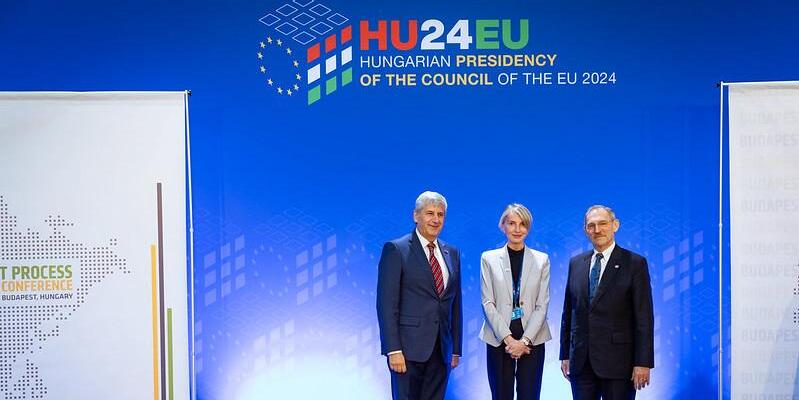News

7th Ministerial Conference of the Budapest Process Held in Budapest
The 7th Ministerial Conference of the Budapest Process took place in Budapest, Hungary, where participating countries adopted a ministerial declaration and a 2025-2030 action plan for implementation.
Georgia’s delegation, led by First Deputy Minister of Justice Tamar Tkeshelashvili, participated in the conference. Tkeshelashvili addressed issues outlined in the ministerial declaration, underscoring the importance of collaboration among nations in migration management at both global and regional levels.
Also representing Georgia was Ambassador Tamar Liluashvili, alongside officials from Georgia's Ministries of Justice and Internal Affairs.
The ministerial declaration and action plan address key topics, including the prevention of illegal migration, capacity-building for legal migration, migrant return and reintegration, leveraging migration’s positive impacts on development, and enhancing international protection and integration.
These documents result from the collaborative efforts of over 50 participating countries and 10 partner international organizations within the Budapest Process. The adopted action plan establishes priority areas for the region over the next five years.
 Geo
Geo Eng
Eng